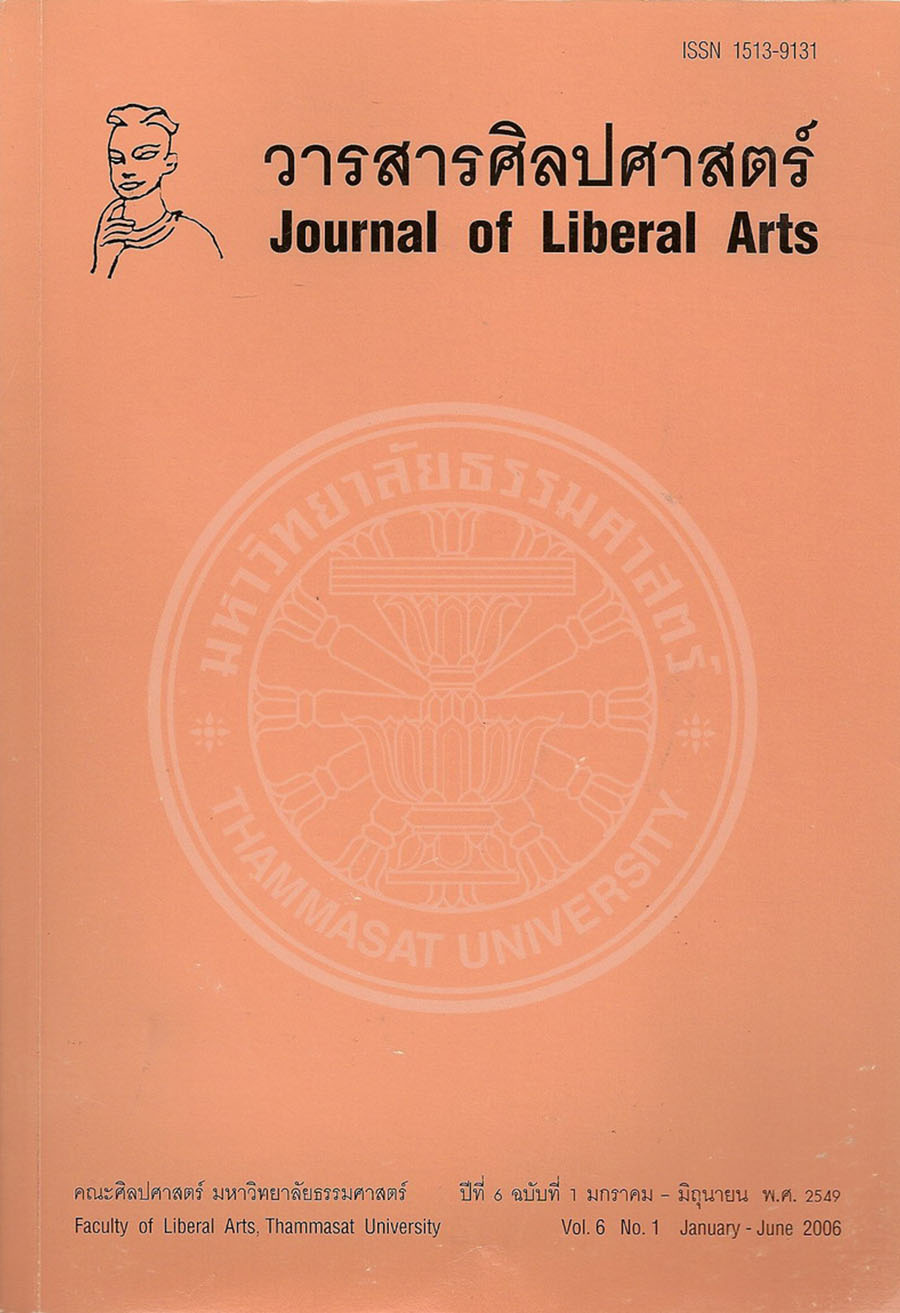ภาพผู้หญิงญี่ปุ่นที่สะท้อนในงานเขียนสมัยเมจิ
Main Article Content
บทคัดย่อ
สมัยเมจิ (Meiji-jidai- )(1868-1912) เป็นช่วงที่ประเทศญี่ปุ่นมีการพัฒนาในหลาย ๆ ด้านเนื่องมาจากการรับอารยธรรมจากตะวันตก แต่ภายใต้กระแสการเปลี่ยนแปลงครั้งยิ่งใหญ่นี้ กลับพบว่าบทบาทและสถานภาพของผู้หญิงญี่ปุ่นยังคงพันธนาการจากระบบของสังคมเช่นเดิม บทความนี้จะศึกษาภาพของผู้หญิงญี่ปุ่นที่สะท้อนออกมาในงานเขียนสมัยเมจิที่มีชื่อเสียงสามเรื่องคือเรื่อง (ในคืนที่สิบสาม) (The Thirteenth Night) ของฮิกุจิ อิจิโย (Higuchi Ichiyō: ) เรื่อง (ห่านป่า) (Wild Geese) ของโมริโอไง (Mori Ōgai: ) และเรื่อง (มิดาเระกะมิ) (Disheveled Hair) ของโยะซาโนะ อากิโกะ (Yosano Akiko: ) ทั้งสามเรื่องล้วนมีตัวละครหลักเห็นผู้หญิง โดยในแต่ละเรื่องจะนำเสนอภาพของผู้หญิงในสังคมญี่ปุ่นสมัยเมจิที่ต้องทนทุกข์ทรมานอยู่ภายใต้ระบบที่บิดาเป็นใหญ่ที่สุดในบ้าน ผู้หญิงที่ต้องรักษาภาพของภรรยาที่แสนดีและมารดาผู้ปราดเปรื่อง รวมทั้งผู้หญิงที่เป็นภรรยาน้อย ถึงแม้ว่าจะมีผู้หญิงบางกลุ่มเริ่มตื่นตัวในความเป็นตัวของตัวเองและลุกขึ้นพยายามเรียกร้องสิทธิเสรีภาพของตนอันเนื่องมาจากการแพร่หลายของศาสนาคริสต์ และการรณรงค์ในเรื่องสิทธิมนุษยชนก็ตาม แต่ตราบใดที่อิทธิพลแนวความคิดขงจื้อยังคงดำรงอยู่ในสังคมญี่ปุ่น สุดท้ายความพยายามในการปลดเปลื้องตนเองจากข้อจำกัดในสังคมเช่นนี้ก็มักจะจบลงอย่างไร้ความหมาย
Japan started the modernization after the restoration in the meiji period. (1868-1912) Despite the treads of progress and westernization, it appeared that Japanese women’s role and status were still restricted by social rules and remained the same as in the Edo period. This article will study how literary works in this period reflects the image of Japanese women through three major works: The Thirteenth Night by Higuchi Ichiyō, Wild Geese by Mori Ōgai and Disheveled Hair by Yosano Akiko. The protagonists in these three works are all women. In each work, we can see the image of Japanese women who suffer under the male supremacy system and have to behave themselves as good wives and wise mothers or as concubines. Because of the introduction of Christian education and the movement forwards human rights, there were some women who became conscious of their identity and gradually began to claim their human rights. But as far as Confucianism still existed in Japanese society, the women’s struggle to free themselves from the confines of the traditional society finally almost ended up in vain.


